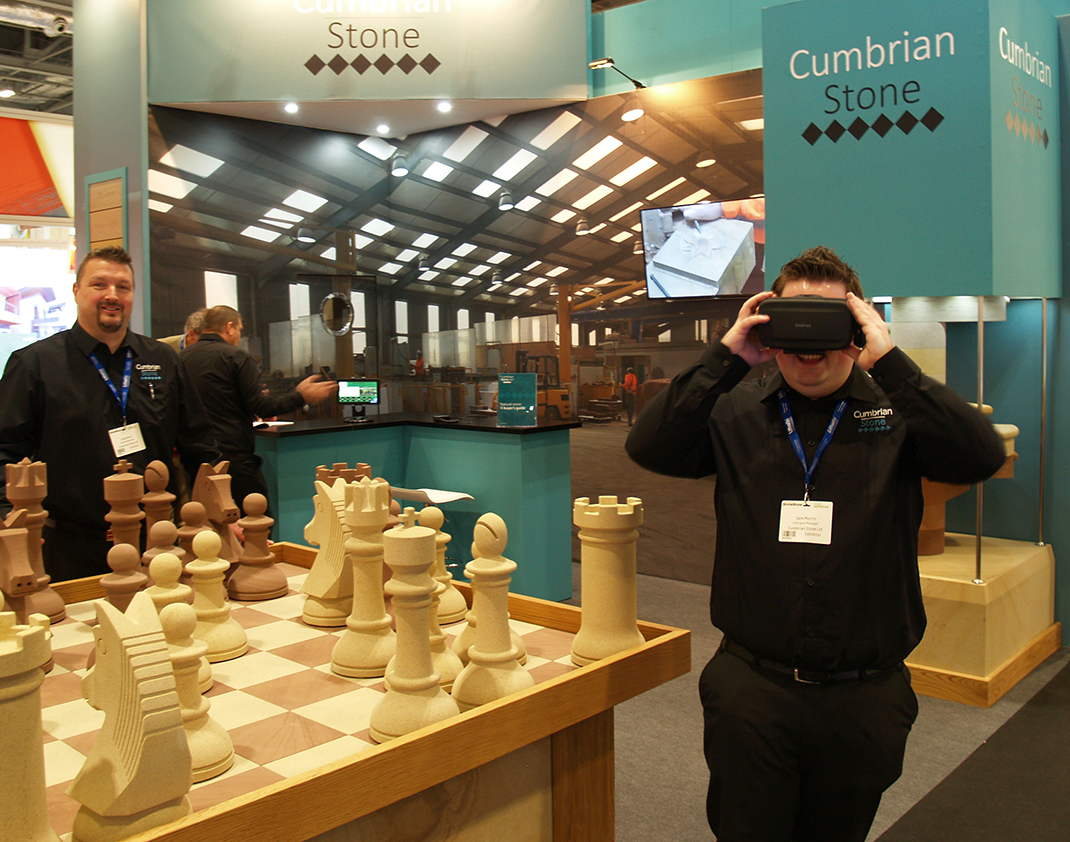Information technology (IT) has kept companies in touch in the stone industry (as elsewhere) during the pandemic lock-down.
Unable to meet face-to-face or go to sites to inspect materials, alternatives now available for the first time in human history have come to the fore - and are unlikely to go away again. This is (among other things) what people mean by the 'new normal'.
Many of those who had never tried video conferencing or had been blissfully unaware of it before the pandemic have discovered from working at home and self-isolating how easy it is to connect on Zoom, MS Teams and the rest, in spite of the occasional frozen screen and lost word.
Companies have also made use of videos to bring people into their premises virtually. Caesarstone says it had an increase of more than 800% in the number of online visitors to its showroom in Enfield. The Lettering Arts Trust used the same technology to allow virtual visitors to its John Skelton exhibition at its gallery in Snape Maltings in Suffolk to steer themselves around the exhibition and stop and read information about the exhibits as they reached them.
Stone federation asked its members how they had used IT during the lock-down and discovered several of its stone supply members had used the same technology to provide virtual yard tours to allow visitors to ‘walk through’ an online inventory of hundreds of different types of stone and get (almost) just as ‘up close and personal’ as on a physical visit. The only drawback for stone is it is a particularly tactile material - it needs to be felt to be fully apreciated.
Some of its quarrying members had used drones to allow specifiers to ‘drop-in’ to the quarry to inspect the blocks and select material for projects.
Dry lay material inspections had also used drone technology. In one case the stone was in Portugal being inspected by the team in London.
Stone Federation said: "The common theme throughout these examples is the vast reduction they bring in miles travelled and therefore carbon output. So many of the ways in which businesses have been innovating, from the ‘Working From Home’ setups through to the drone inspections, have amazing benefits for the environment, something that hasn’t gone unnoticed by the industry.
"Many Stone Federation members are already evaluating which of their COVID-19 compliant business pivots are more than just a temporary measure and will ultimately replace the previous methods of business.
"We are encouraging specifiers, architects, interior designers, client and local authorities to explore the ways that the natural stone sector is providing for continued business connection and innovation." To start your search for a Stone Federation member go to www.bit.ly/FindAMember.

